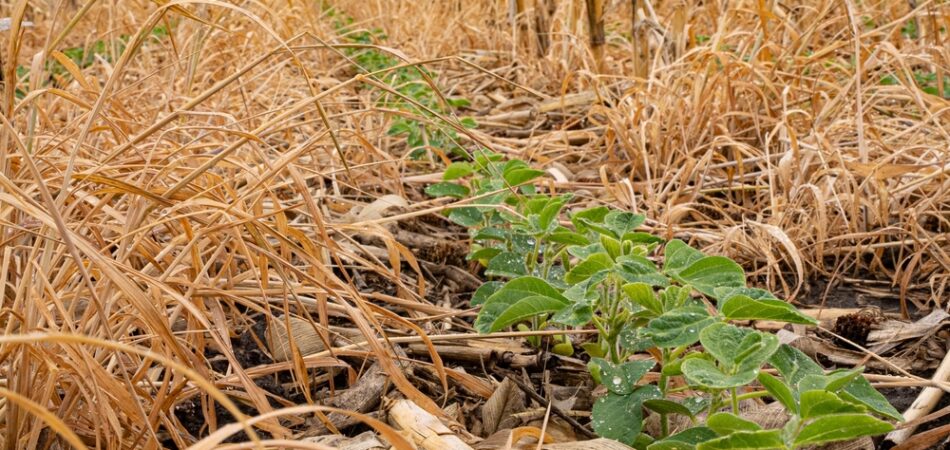
Cover crops play a crucial role in sustainable agriculture by enhancing soil health, improving water retention, and preventing erosion. In this article, we’ll explore the numerous benefits of cover crops and why they are an essential component of sustainable farming practices.
Understanding Cover Crops
What are Cover Crops?
Cover crops, also known as green manure or living mulch, are crops planted primarily to benefit the soil rather than for harvest. These crops are typically grown between cash crops or during fallow periods to protect and improve the soil.
Types of Cover Crops
Cover crops come in various types, including:
- Legumes: Such as clover, peas, and beans, which fix nitrogen from the air and enrich the soil.
- Grasses: Including rye, oats, and barley, which provide biomass and help suppress weeds.
- Brassicas: Such as radishes and mustard greens, which help break up compacted soil and scavenge nutrients.
The Benefits of Cover Crops in Sustainable Agriculture
Soil Health
One of the primary benefits of cover crops is their ability to improve soil health. Cover crops help:
- Increase Organic Matter: As cover crops decompose, they add organic matter to the soil, improving its structure and fertility.
- Enhance Soil Structure: Cover crop roots help aerate the soil, reducing compaction and improving water infiltration.
- Suppress Weeds: Some cover crops release allelochemicals that inhibit weed growth, reducing the need for herbicides.
- Prevent Erosion: Cover crop residues protect the soil from erosion by wind and water, especially during periods of heavy rainfall or strong winds.
Nutrient Management
Cover crops play a vital role in nutrient management by:
- Nitrogen Fixation: Legume cover crops, such as clover and vetch, have symbiotic relationships with nitrogen-fixing bacteria, allowing them to convert atmospheric nitrogen into a form that plants can use.
- Nutrient Recycling: Cover crops scavenge excess nutrients from the soil, preventing leaching and runoff, and making them available for subsequent cash crops.
- Reducing Fertilizer Dependency: By improving nutrient cycling and soil fertility, cover crops can reduce the need for synthetic fertilizers, lowering input costs and minimizing environmental pollution.
Water Retention
Cover crops help improve water retention in the soil by:
- Reducing Evaporation: Cover crop residues provide a protective layer on the soil surface, reducing evaporation and conserving soil moisture.
- Increasing Infiltration: Cover crop roots create channels in the soil, allowing water to penetrate more deeply and reducing surface runoff.
- Managing Soil Moisture: In regions prone to drought or erratic rainfall, cover crops can help regulate soil moisture levels, providing a buffer for cash crops during dry periods.
Implementing Cover Crops in Sustainable Agriculture
Crop Rotation
Integrating cover crops into crop rotation systems is a common practice in sustainable agriculture. By rotating cash crops with cover crops, farmers can:
- Break Pest Cycles: Cover crops disrupt pest and disease cycles, reducing the need for chemical pesticides.
- Improve Soil Fertility: Cover crops replenish soil nutrients and organic matter, enhancing overall soil health and productivity.
- Enhance Biodiversity: Diverse cover crop mixes support a wide range of beneficial insects and microorganisms, promoting ecosystem resilience.
Conservation Tillage
Conservation tillage practices, such as no-till or reduced tillage, are often used in conjunction with cover crops to minimize soil disturbance and erosion. By reducing tillage, farmers can:
- Preserve Soil Structure: Minimal soil disturbance maintains soil structure and reduces compaction, improving water infiltration and root penetration.
- Protect Soil Microorganisms: Cover crops provide habitat and food for soil microorganisms, enhancing soil biological activity and nutrient cycling.
- Save Time and Energy: Conservation tillage practices reduce fuel and labor costs associated with traditional tillage methods, making farming more sustainable and cost-effective.
Conclusion
Cover crops are a cornerstone of sustainable agriculture, providing numerous benefits for soil health, nutrient management, and water retention. By integrating cover crops into farming systems, farmers can improve soil fertility, reduce erosion, and enhance overall sustainability. As the importance of regenerative agriculture continues to grow, cover crops will play an increasingly vital role in building resilient and productive farming systems for the future.
Need Soil Testing in Pasco, WA?
Founded in 1992, Custom Orchard Fumigation was created by farmers for farmers. We take great pride in providing soil fumigation services to farmers throughout the state. We can also help growers find other services to help in growing their crops. We also provide all paperwork for our services to ensure all regulations are met. Our founder, Chris Ford, has a background in Forest Management, and we are conscious of reducing the environmental impact on the soil and surrounding areas of your plot. Custom Orchard Fumigation invites you to visit our website or give us a call today!
